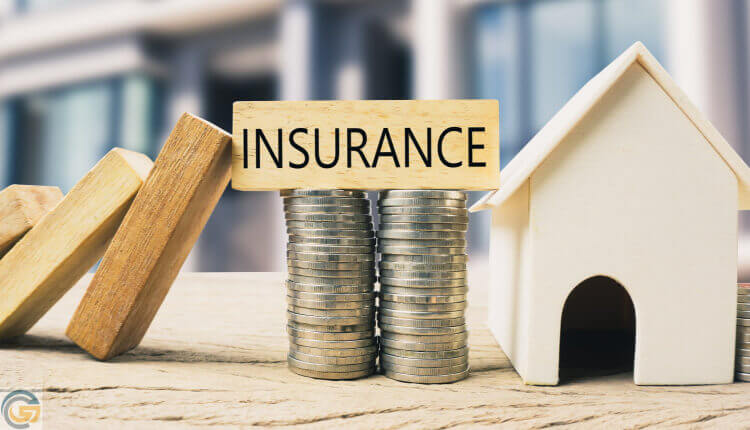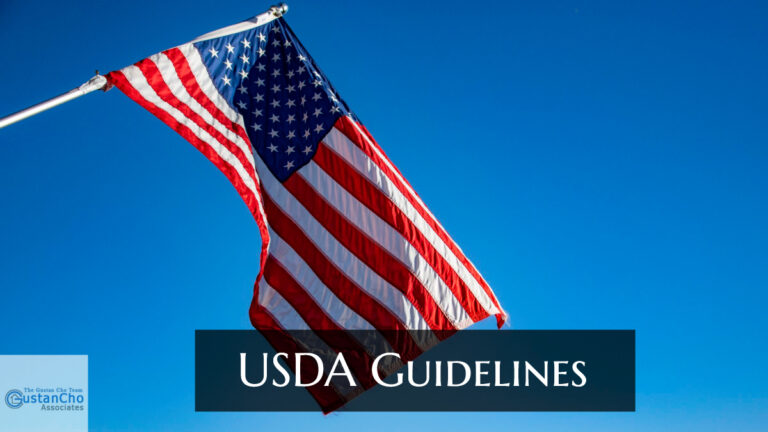Qualifying For a Mortgage and Buying a House in 2025
This guide covers qualifying for a mortgage and buying a house in 2025. Many wonder if it will be tougher to qualify for a mortgage loan in 2019. 2018 has been a stellar year for the mortgage business. A record number of people became first-time homeowners. Many new mortgage loan programs were implemented and launched. Qualifying for a mortgage has gotten easier and simpler with using non-QM loans for self-employed borrowers qualifying for a mortgage, says John Strange:
Non-QM loans and Bank Statement Mortgage Loans for Self-Employed Borrowers. Non-qualified mortgages are now very popular with mortgage lenders for bad credit. Self-employed borrowers can use bank statement deposits and not include federal income tax returns qualifying for a mortgage.
Home sales hit historic highs. Home prices have increased by almost 7% in 2024; the FHFA has increased conforming loan limits to $524,225 starting January 2025. In this article, we will cover and discuss qualifying for a mortgage during a booming housing market.
Qualifying for a Mortgage After Housing Bubble Crash
Due to the financial and credit meltdown of 2008, Congress passed the Dodd-Frank Mortgage Reform Act, which overhauled the lending and mortgage industry by creating new rules, regulations, and guidelines. Lisa Marie Jones, a real estate investor and developer, says the following about qualifying for a mortgage in 2025:
The birth of new federal regulatory agencies like the Consumer Financial Protection Bureau, also known as the CFPB, was now the norm. The overhaul of the mortgage industry due to the Dodd-Frank Mortgage Reform Act has forced many mortgage companies and mortgage loan originators out of business.
It has set new standards in training and licensing requirements for veteran and newer mortgage loan originators. Quality Mortgage (QM) was created and implemented. The old Good Faith Estimate was replaced with the Loan Estimate (LE). The HUD-1 Settlement Form was replaced with the Closing Disclosure (CD). Qualifying for a mortgage has gotten much easier than it used to be. This holds especially true with FHA, VA, and USDA loans. These home loans are called government-backed mortgage loans and the government has made it easier to qualify due to the government guarantee.
Qualify for a Mortgage After the Housing Bubble Crash – You Can Still Buy!
Apply Now And Get recommendations From Loan Experts
qualifying for a mortgage: New Mortgage Regulations
Many mortgage companies were originating, processing, and underwriting residential mortgage loans and reselling them to lenders. The mortgage companies were extremely profitable due to the fact that they were charging upfront charges for originating mortgage loans Lenders were not too concerned about the mortgage loans they were originating to mortgage loan borrowers and the borrowers’ ability to repay the mortgage loan back.
FHFA Increases Conforming Loan Limits For 2025 qualifying for a mortgage
The Federal Housing Finance Agency (FHFA) increases conventional loan limits to $806,500 from $766,550 effective January 2025. This is great news for homebuyers with conventional loans. The FHFA increased conforming limits now for the ninth year in a row. The main reason for the Federal Housing Finance Agency increasing conventional loan limits is due to the rise of housing prices nationwide. Normally, when one agency like the FHFA increases loan limits, other government agencies such as FHA, VA, and USDA follow. Stay tuned to what the new loan limits for FHA, VA, and USDA will be.
Will Qualifying for a Mortgage Be Harder in 2025?
The Dodd-Frank Mortgage Reform Act was passed in 2010 to eliminate predatory mortgage lending practices by the mortgage industry. The act is being fine-tuned, and the Dodd-Frank Mortgage Reform Act of 2010 will make it tougher to qualify for a mortgage loan in 2025. The Dodd-Frank Mortgage Reform Act and new mortgage rules and regulations The Dodd-Frank Mortgage Reform Act will make it tougher to qualify for a mortgage loan in 2025. Mortgage lenders are required to follow eight checklists in originating and closing a residential mortgage loan to a public mortgage loan borrower.
Debt-to-Income Ratio In Qualifying For a Mortgage
A mortgage borrower will need sufficient income and assets when qualifying for a mortgage to cover their residential mortgage loan payments.
Income is extremely important and probably the most important factor for lenders to determine and predict whether or not borrowers can make his or her mortgage payments. Employment history and credit history are good indicators of the probability of a borrower’s ability to make his mortgage payments on time and not default on her residential mortgage loan. Mortgage lenders rely on the four C’s of mortgage lending, which are:
- Capacity
- Credit
- Collateral
- Cash on qualifying and approval a residential mortgage loan
Dodd-Frank Mortgage Reform Act Qualifying for a mortgage
The Dodd-Frank Mortgage Reform Act is based on the four C’s of mortgage lending: The main objective of this act is focused on the ABILITY TO REPAY (Regulation Z under the Qualified Mortgage Standards Under the Truth in Lending Act) the original mortgage obligation from the mortgage loan borrower. Qualified Mortgage is commonly known as QM. The capacity in the four C’s refers to the borrower’s gross monthly income and their assets and reserves.
Employment When Qualifying For a Mortgage
Borrowers need to prove that he or she is employed and that they will continue to be employed, whether as a W-2 employee or independent contractor: Borrowers need to prove that they have income by providing the sources of regular monthly gross income. A borrower’s job is probably the most common way of proving income. Other sources of income are tax returns if borrowers are:
- Self-employed
- Social security income
- Pension income
- Disability income
- Royalty income
- Other income that can be documented
Worried that the housing bubble crash has affected your ability to qualify for a mortgage?
Apply Now And Get recommendations From Loan Experts
Qualified Income Qualifying For A Mortgage
Income documentation and verification are tougher to determine. If the borrower owns their own business or is a 1099 employee or independent contractor, they need to prove to the mortgage underwriter that the income will continue for the next three years. Also, provide two years of minimum personal and business tax returns. The previous tax returns will prove that the borrower had consistent income and income will continue in future years to come.
Ability To Repay Home Mortgage When Qualifying For a Mortgage
Borrowers need to prove that they can afford housing expenses, including property tax, homeowners insurance, and homeowner association fees if applicable: Besides the mortgage principal and interest payments, the borrower has added monthly housing expenses on top of the mortgage payments, which are property taxes, homeowners insurance, and homeowner association fees. All of these fees need to be calculated to qualify the borrower and make sure the borrower can afford it according to the Dodd-Frank Mortgage Reform Act of 2010.
Liens On Property When Qualifying For a Mortgage
Need to document and factor in any additional mortgage loans and the amount the borrower pays on additional mortgage loans. If a borrower has other properties with mortgages or has a second, third, or HELOC, these mortgages and loan payments need to be factored in when lenders qualify for the borrower’s loan request. Many lenders did not factor in second mortgages and HELOC mortgages when qualifying for new mortgage loans
Total Properties When Qualifying For a Mortgage
Mortgage borrowers qualifying for a mortgage need to fully disclose any other properties they own:
Fannie Mae and Freddie Mac have special guidelines when it comes to 5- to 10-financed properties. If a borrower is a real estate investor, they may be limited on options with government and conventional loan programs. If a borrower owns a vacation home or second home or investment properties, they need to disclose that. The lender needs to factor in the other properties the borrower owns and their respective expenses into qualification for the new mortgage loan.
Debt And Liabilities When Qualifying For A Mortgage
Alimony and child support payments need to be used when qualifying for a mortgage: Alimony and child support payments need to be fully disclosed and be used as a liability in mortgage loan qualification. This is already a practice most lenders use but again, it will be mandatory for all lenders and no exemptions can be made
Debt-to-income ratios will be lowered:
- Debt-to-income ratios for Conventional mortgage loans is normally capped at 50% DTI
- Many lenders who are FHA-insured lenders with no overlays are capping the back-end debt-to-income ratio on FHA-insured mortgage loans at 56.9%
- Lenders are most likely be lowering the back-end debt-to-income ratios on FHA loans due to their own lender overlays
I will keep you posted
Credit Scores Versus Credit Payment History
Borrowers will be required to have clean credit and decent credit scores. Loan programs have minimum credit score requirements. For example, FHA requires a 580 credit score for borrowers to qualify for a 3.5% down payment home purchase. However, just meeting the minimum credit scores is not sufficient. In order to get approved/eligible per the Automated Underwriting System (AUS), borrowers need 12 months of timely payments and other credit requirements. A consumer’s credit scores are one factor that will always be used when a borrower applies for any type of credit. Lenders expect that you have no late payment history in the past 24 months and no derogatory credit after a bankruptcy and/or foreclosure
Homebuyers needing to qualify for a home mortgage with a lender with no lender overlays, please contact us at Mortgage Lenders for Bad Credit at 800-900-8569 or email us at gcho@gustancho.com. We are available 7 days a week, evenings, weekends, and holidays.
This guide on qualifying for a mortgage in 2025 was updated on March 28, 2025.
Buying a home after the crash is a great step toward rebuilding your credit and wealth
Apply Now And Get recommendations From Loan Experts







